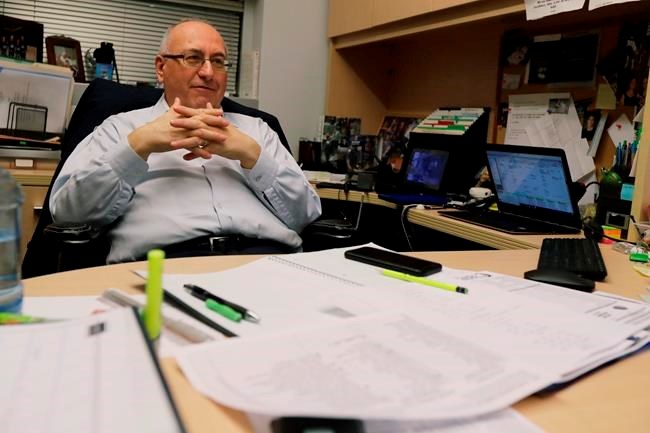KENT, Wash. — They showed up on a Tuesday night in early January to enjoy the 2-for-1 beers and hot dogs, the free parking, the $15 tickets a few rows off the ice and the chance to chant "Portland sucks," for three hours.
Some of the more than 5,000 people in attendance wore the jerseys of the Islanders, Sharks, Rangers, Maple Leafs, Bruins, Canucks, Golden Knights and of course, the hometown Seattle Thunderbirds of the junior-level Western Hockey League. Someday it may be the Sasquatch, Totems or Sockeyes or whatever a potential future NHL franchise in Seattle ends up adopting as its nickname.
This scene plays out regularly inside the accesso ShoWare Center, about 20 miles southeast of downtown Seattle. Junior hockey in Seattle has a storied history. Hockey's history in the Emerald City dates back more than a century to when the Seattle Metropolitans hoisted the 1917 Stanley Cup.
All indications are that the NHL and Seattle are on the verge of a marriage sometime in 2018. The arrival of an NHL franchise — likely in 2020 or 2021 depending on construction of a remodeled Seattle Center arena — will fill a void in the gloomy months of the sports calendar and drop the NHL into the biggest market in the country without a winter sports team.
But can a booming Seattle eventually become a hockeytown?
"It's the last place in the United States in my opinion to catch on to hockey," said former Philadelphia Flyers general manager and current Thunderbirds GM Russ Farwell.
"Everyone assumes that because we're close to Canada we're into hockey and that's not the case," Farwell continued. "There is no reason this can't be a good hockey town and I think there is a lot of pluses."
The first test of Seattle's willingness to embrace the NHL will arrive in the coming months when the prospective NHL ownership group begins a season-ticket drive, the same way the league tested Las Vegas. Seattle Mayor Jenny Durkan released a statement Tuesday after visiting with NHL Commissioner Gary Bettman on her way to the U.S. Conference of Mayors to express her support and enthusiasm for the NHL in Seattle.
But finding a foothold in Seattle will be an examination of how starved fans are for another team. Basketball is embedded in the DNA of the region thanks to 41 years of the SuperSonics until 2008 and a lengthy history of producing NBA talent. When the rain of the fall and winter drive young athletes inside, they grab a basketball and head for the nearest gym to play pickup games.
Basketball courts and coffee shops seem to be on every corner, but ice rinks are scarce.
"The chance to participate and stay involved and play the game needs ice rinks and that's all it would take," Farwell said. "There's no reason this couldn't be grown to be a good hockey city and
Any NHL team in Seattle would find a completely different landscape than a decade ago when the Sonics and NBA moved to Oklahoma City and the city lost its winter sports outlet.
Seattle's skyline is filled with as many construction cranes as snowcapped peaks in the surrounding mountains. Amazon has taken over an entire section of the city, joined nearby by satellite offices of Google and Facebook. The amount of wealth now in the Seattle market is part of the reason Oak View CEO Tim Leiweke has regularly called Seattle "a brilliant marketplace" and one of the most enticing expansion opportunities in pro sports history.
Seattle has become a city of transplants due to the booming local economy. A hockey franchise would provide those newcomers a team to rally around, much like what happened when the Sounders of the MLS arrived in 2009.
But it's a different sports marketplace than a decade ago, when ticket sales and television revenues were driving franchise success. The globalization of sports due to technology has become a challenge for all leagues, said Jennifer Hoffman of the College of Education at the University of Washington.
"I think the question about our population is what sports are they interested in? And that's going to be a challenge for all of our franchises, our big franchises and our smaller ones," Hoffman said. "It's not a Seattle phenomenon but we're a good case for this point in history where digital transition is really occurring and it's really hard to know who your fans are and where they are."
John Barr believes there are plenty of potential hockey fans in the Seattle market. A Bay Area transplant, Barr has become the voice of hockey fans with his NHLtoSeattle.com
"The Seahawks run this town and I think a lion share of people obviously want the Sonics back," Barr said. "I totally understand the hierarchy there, but I just think this is a great opportunity for the area to have the NHL and have a winter sport."
Season tickets are just one of several significant obstacles. Arena construction won't begin until later this year with an ambitious goal of completion in late 2020. There are also transportation issues near the arena site.
And the franchise needs to be awarded in the first place. Bettman wouldn't even entertain discussion about Seattle recently.
"The application has not yet been filed so any speculation about Seattle is, at this point, a little premature," Bettman said.
In the corner of his office, Thunderbirds
"It always amazed me when I first got here that people didn't even know there was a hockey team in town. Well, that's still the case," said Campbell, who moved to Seattle in 1995. "It's still out there, and yet we're doing very well in this building and everything is going good. But it's a big market, it's a tough market to reach ... so with an NHL team coming in and working together it will create new opportunities to grow."
Tim Booth, The Associated Press
